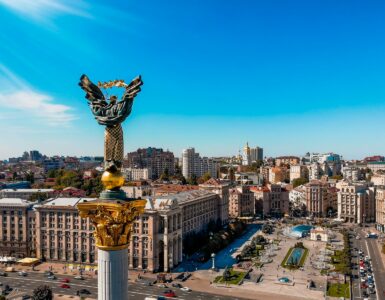KAZAKHSTAN
South Korea’s Samsung is considering the relocation of its Russia-based plant to Kazakhstan, lured by accommodating government and growing high-tech sector. Earlier, Kazakhstan’s President Tokaev charged the government with creating favorable conditions for Western companies leaving the Russian market and seeking to move their production facilities somewhere else. [Source: Kapital]
Kazakhstan’s President Kassym-Jomart Tokaev signed a law to foster digitization, cybersecurity and education. The new provisions aim to help digitize government agencies, expand adoption of electronic documents and institutionalize data management system. [Source: Time.kz]
Kazakhstan’s Ministry for Digital Development, Innovations and Aerospace increased fines for telecommunication companies for low quality telephone and Internet services. The number of complaints about the telecommunication services quality rose ten times in 2021 compared with the year before.[Source: The Kazakhstan IT Companies Association]
FOOD DELIVERY
Russian food delivery service Yandex.Eda has expanded to the B2B segment. Employees at Yandex’s corporate clients will be able to buy food at restaurants, cafes, and vending machines through Yandex’s mobile application or website. [Source: Vedomosti]
Russian food delivery service VkusVill now offers dishes for passengers of trains leaving from Moscow. A passenger can order food when buying a ticket and their food will be delivered before train departure. [Source: RB]
REGULATION
Russia’s leading search engines, Yandex and Mail.ru, started labeling Twitch in their search results as an entity “in violation of the Russian legislation.” The decision followed a relevant demand by Roskomnadzor, the Russian communications government watchdog, that accused Twitch Interactive, Inc of non-compliance with the body’s demand to delete “fake news” about Russia’s invasion of Ukraine. [Source: Security Lab]
Russian President Vladimir Putin signed a law prohibiting the use of digital financial assets as payment methods. Under the law, this kind of assets relates to any asset giving a right for money, shares or emission of shares. [Source: Kommersant]
STARTUPS
EdTech startup Rifgo that had focused on providing a platform and monetization tools for the creators of education content announced its closure after five months since launch. The change of priorities of the co-founders who all had left Russia in recent months, challenges with investments for a Russian startup, and the absence of a profit-making business model were cited as the main reasons. [Source: RB]
Russian sports education startup Sportuniver raised over $500,000 in its first investment round, valuing the company at about $3.5 million. Sportuniver is building a platform offering courses and training in a variety of sports and sports management professions. [Source: RB]
Inssmart, a Russian B2B marketplace for insurance agents and intermediaries on the insurance market, raised $600,000 valuing the company at $5 million. The funding will be spent on marketing, new services, and entry into the B2C segment. [Source: Forbes]
MARKETPLACES
RuStore, a Russian alternative to AppStore and Play Market, has more than 1,000 applications, recording 500,000 installations and more than 1.1 million of application downloads since launch in June 2022. The most popular applications were banks and payment services (more than 50% of downloads) followed by tools for work, health, entertainment and shopping. [Source: Spark]
National post office operator The Russian Post launched the last mile delivery service for marketplaces in 75 towns and cities throughout the country. Post’s services are 20% cheaper than the market average. [Source: The Russian Post]
SCIENCE
The government funding for scientific research scheduled for 2023-2025 will be allocated to projects that will help the national economy mitigate the war-related sanctions. The decision, the first of its kind in Russia’s history, is targeted at securing “technological sovereignty” and creating critically important technologies. [Source: TASS]
Scientists of Russia, St. Petersburg-based ITMO University invented a new material for catguts able to show the progress of healing of a wound in real time and indicate if the wound was infected. The material is made of a cobweb of Argiope bruennichi (so-called tigroid spider) and fluorescent carbon. [Source: Scientific Russia]






Add comment